Inspired by true stories of addiction and recovery, Painless: The Opioid Musical was developed by OPEN in collaboration with the University of Michigan’s Precision Health and School of Music, Theatre & Dance to reach young audiences far and wide. The show follows a group of students forced to sit through a drug awareness assembly at school — bored at first, it’s not long before they begin to realize their own connections to the ongoing crisis.
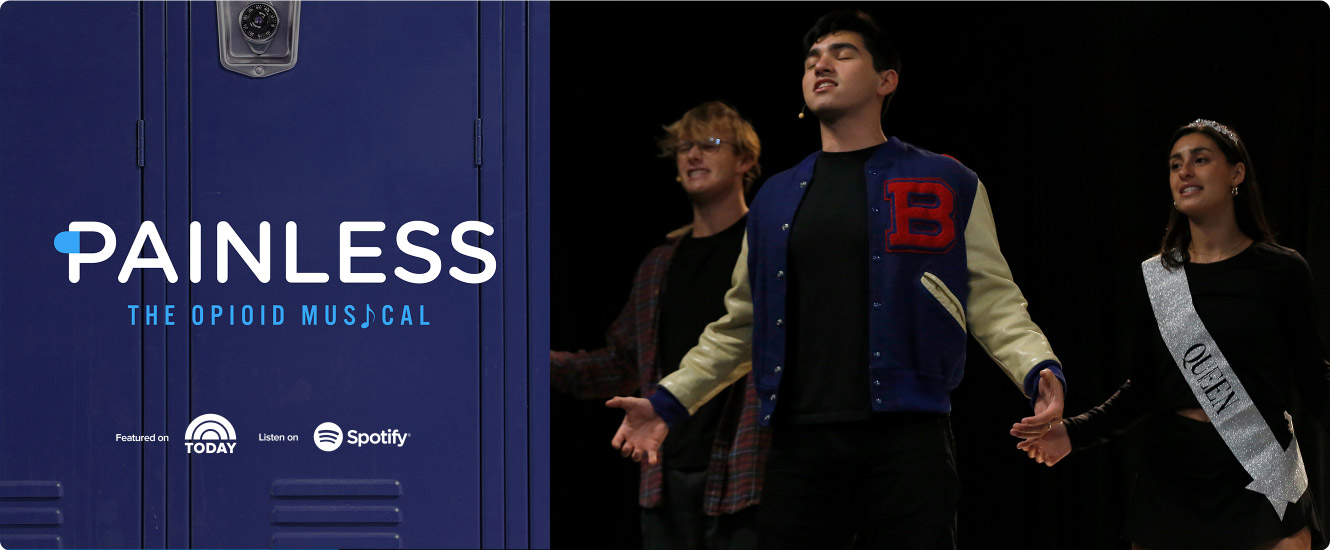
In 2018, individuals from the organization Face Addiction Now (formally Families Against Narcotics) were interviewed. Their personal accounts were translated into song and became the foundation of Painless: The Opioid Musical.
Written by Jacob Ryan Smith with additional material provided by Peter Scattini and Noah Kierserman, the musical debuted with its first live performance in the winter of 2019. After a multi-year delay due to COVID-19, Painless will now begin touring Michigan high schools.
The first live performance for students was held in September of 2022 at Community High School in Ann Arbor. “Painless” and the performance were featured in a segment on The Today Show, highlighting the importance of the musical as a tool to engage teens in conversations about opioids.
Your donation helps us reach more students.
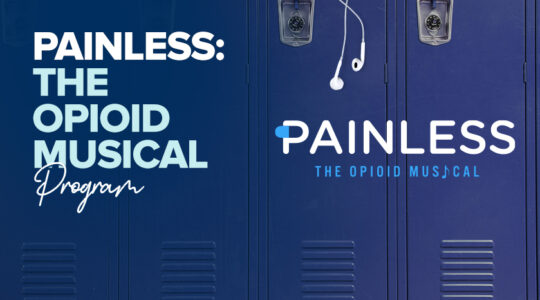
We’ll bring Painless: The Opioid Musical to your high school. Along with a live performance, you’ll receive free resources designed to engage students, including teacher education, Michigan Model for Health module support, cast album with lyric sheet, and toolkit.
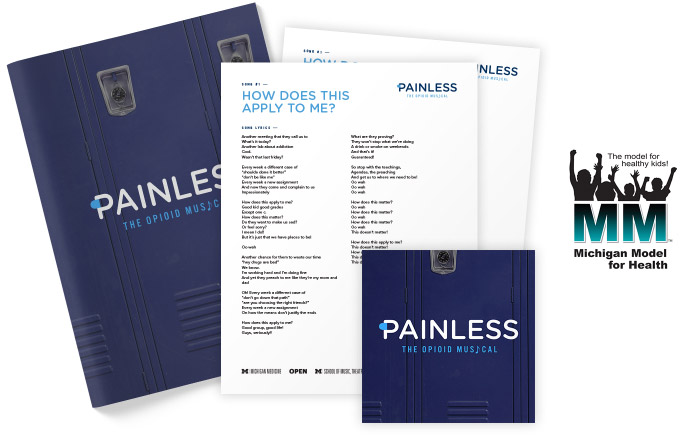

Listen to the official cast recording of Painless: The Opioid Musical.
Use our toolkit to learn everything you need to know about Painless: The Opioid Musical.
Painless is now available for licensing! This is a no cost license, and the musical can be performed solely for non-commercial purposes.
Materials available under the license include:
1. Select one of more of these statistics to begin the discussion.
The musical ends with several statistics, including:
The numbers are alarming and show that everyone is at risk – this applies to each of you in this room.
2. Solicit student’s feedback for the statistics and encourage further conservation about risk.
Example questions:
While opioid use disorder can happen to anyone, there are ways to decrease risk – one of the easiest ways is to avoid opioid misuse.
Example questions:
The musical portrayed several perspectives of how lives can be affected by opioid use disorder differently.
1. Have students listen to or read the lyrics one to one of the following songs:
2. Solicit students’ feedback on the song. Encourage further conversation about who is impacted by the effects of opioid misuse and how.
Example questions:
Stigma, or negative stereotypes, about people with substance use disorder can prevent them from seeking help. It is important to remember that substance use disorder is a disease, not a moral failing or character weakness.
1. Solicit students’ feedback on the impact stigma may have on people with substance use disorder.
Healthy recovery is possible – visit findtreatment.gov
The Substance Abuse and Mental Health Services Administration (SAMHSA) provides quality, fact-based information about opioid misuse.
The mission of Partnership to End Addiction is to transform how the nation addresses addiction by empowering families, advancing effective care, shaping public policy, and changing culture.
The lead federal agency supporting scientific research on drug use and addiction, the National Institute on Drug Abuse (NIDA) offers research and training resources.
With 20+ chapters across Michigan, the mission of Face Addiction Now is to offer community-based, compassionate, best-practice/evidence-based services to people who have been affected by addiction to erase the stigma of addiction while instilling compassion and hope.
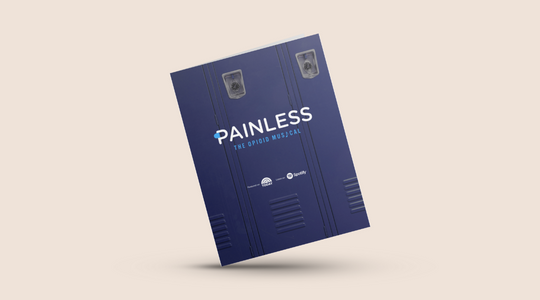
Equip educators with everything they need to effectively bring Painless: The Opioid Musical to life.
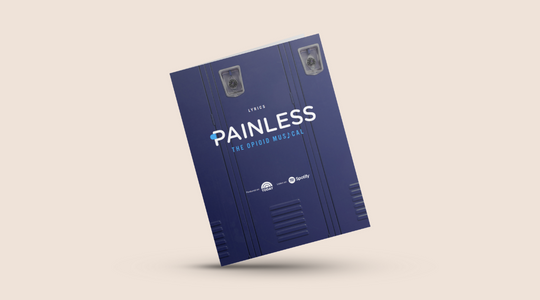
Use these lyrics to follow along with Painless and reference them for discussion about the stories that are told in the musical.